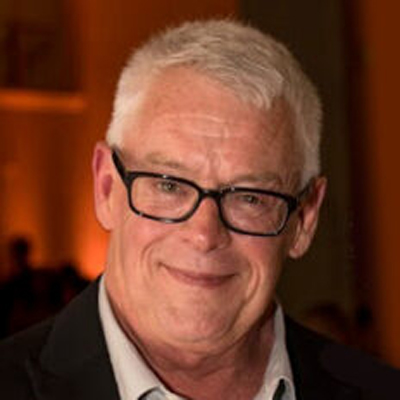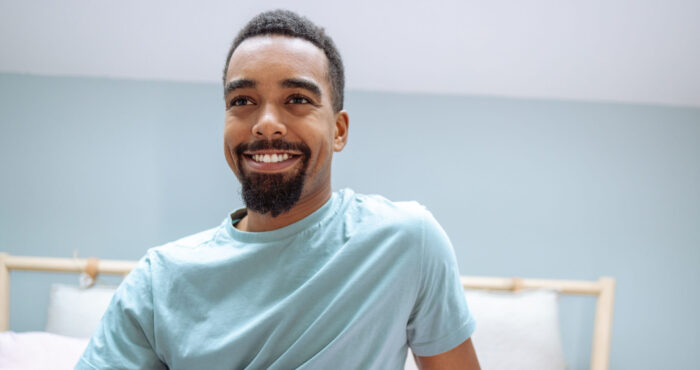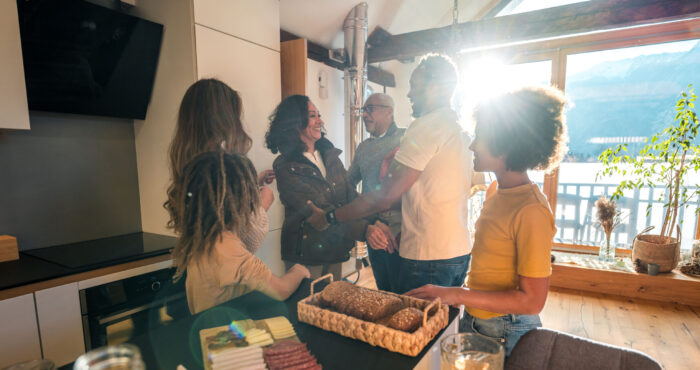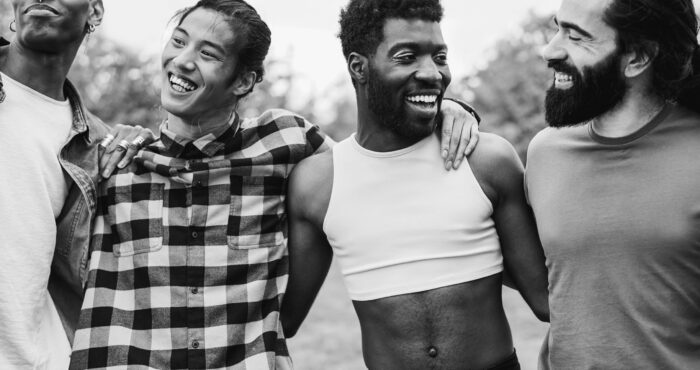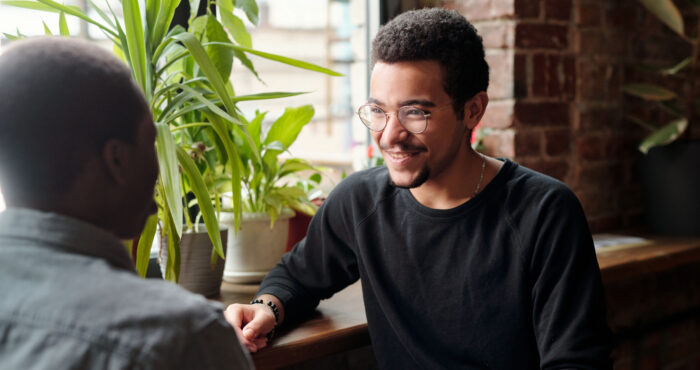Volunteers across 40 years of HIV
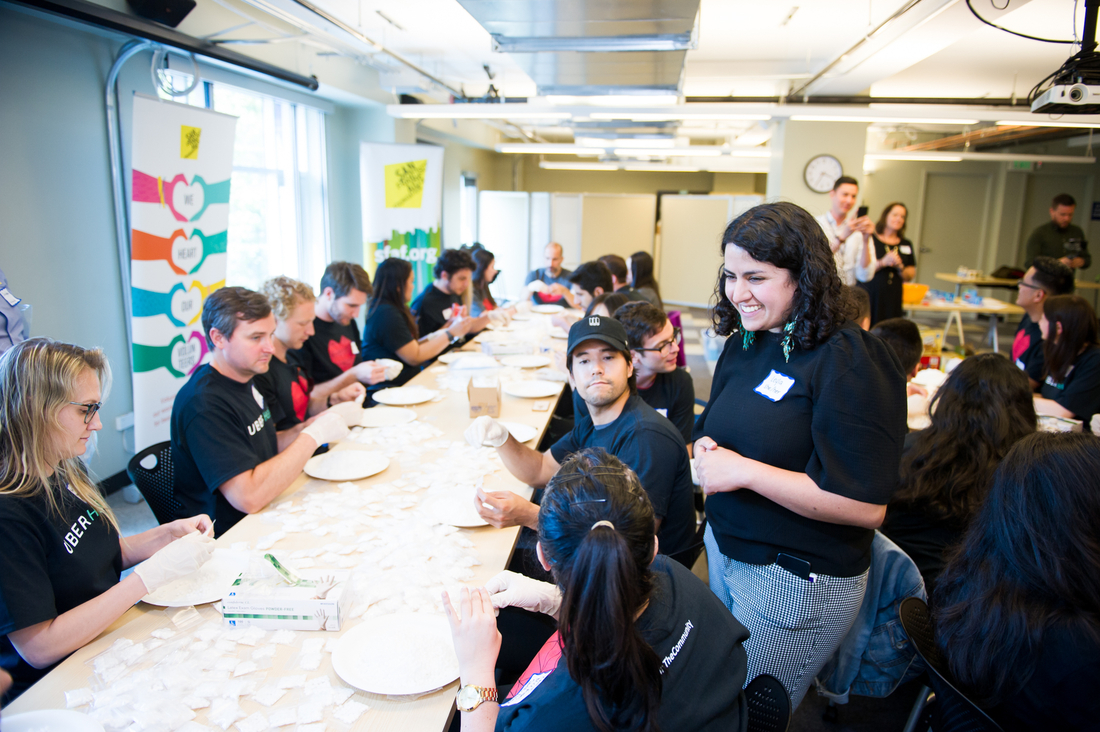
In the beginning all we had was each other. Volunteers—who served in hospitals, as activists, and at community organizations including San Francisco AIDS Foundation—provided a backbone of support and critical help to all of us living (and dying) with this new disease. Now, 40 years later, volunteers at SFAF and across communities nationwide are stepping up to confront a new pandemic even as HIV continues to affect our communities.
I first read about the new disease forty years ago in June of 1981. By 1985 almost everyone I knew was dead, dying or caring for someone who was dying. It would be ten years before effective treatments became available. There was little information, no resources and our communities were overwhelmed by grief and fear. The federal government was indifferent at best and state and local agencies were completely unprepared for the enormity of the challenges.
Homosexuality had been decriminalized in California just six years before the onset of the pandemic and remaining sodomy laws would stay on the books until the US Supreme Court ruling on Lawrence v. Texas in 2003. Early public perception of HIV/AIDS as an affliction solely of gay men was exploited by right-wing politicians and commentators like the late Rush Limbaugh, who mocked AIDS patients and celebrated their deaths.
Everything about HIV/AIDS was political. The new pandemic revealed, with brutal clarity, the interconnection of so many complex issues: sexuality, substance use, incarceration, the status of women, systemic racism, transphobia, income inequality and religion all impacted our response to a disease that was killing thousands of our friends, neighbors and family members.
As the death toll increased, more and more people understood that everyone had a role to play to defend our communities. Dozens, then hundreds, then thousands joined the ranks of volunteers who were united not only by a desire to lessen the suffering but who saw our struggle against HIV/AIDS as part of a larger, global movement for social justice.
The first generation of volunteers with San Francisco AIDS Foundation understood that we were required to fight more than a virus.
Volunteers staffed the hotlines, marched in the streets, lobbied politicians, cared for the sick, and comforted the dying. We created public education campaigns, pressed for research and demanded that people living with AIDS be included in all discussions about how to best respond to the pandemic. Volunteers did so much more than stuff envelopes and answer phones. Through their own lived experiences, they shaped the creation of health care infrastructures and guided crucial policy decisions.
Many of those thousands of volunteers who stepped forward during the darkest years of the pandemic were themselves from communities at the greatest risk. So many of our volunteers were themselves HIV-positive and far too many of them did not survive.
As I look back at the last four decades, I am frustrated and angered by how many of the lessons that should have been learned from our experience with HIV/AIDS are forgotten or ignored as we deal with the current pandemic.
Once again, with COVID-19, we see shameful statistics illustrating the racial disparities in health care. Once again, we see politicians and pundits sow confusion and engage in scapegoating. Once again, we see the urgent need for trusted messengers to convey accurate and timely information, particularly to communities that have historically been abused or neglected by government agencies. Once again, we see the marginalized suffer greater infection rates, hospitalizations and death. Fortunately, we also see that, once again, ordinary people are stepping up, volunteering and doing the work required to meet the challenges ahead.
Today’s volunteers support the organization’s mission every day. Volunteers at the 6th Street Harm Reduction Center and mobile syringe access services provide essential supplies to prevent HIV transmission and overdose deaths. They give a voice to hundreds of thousands of Californians living with HIV by advocating for increased funding and sound public policies. They promote sexual health and wellness through clinical programs, providing important information and taking the stigma and shame out of sex. They organize special events and raise the funds to advance health justice.
Every SFAF volunteer working today honors the legacy of their predecessors and builds on their work. Every volunteer helps us connect with our communities and move us all forward. And every volunteer reminds us every day that our greatest asset is ourselves.






